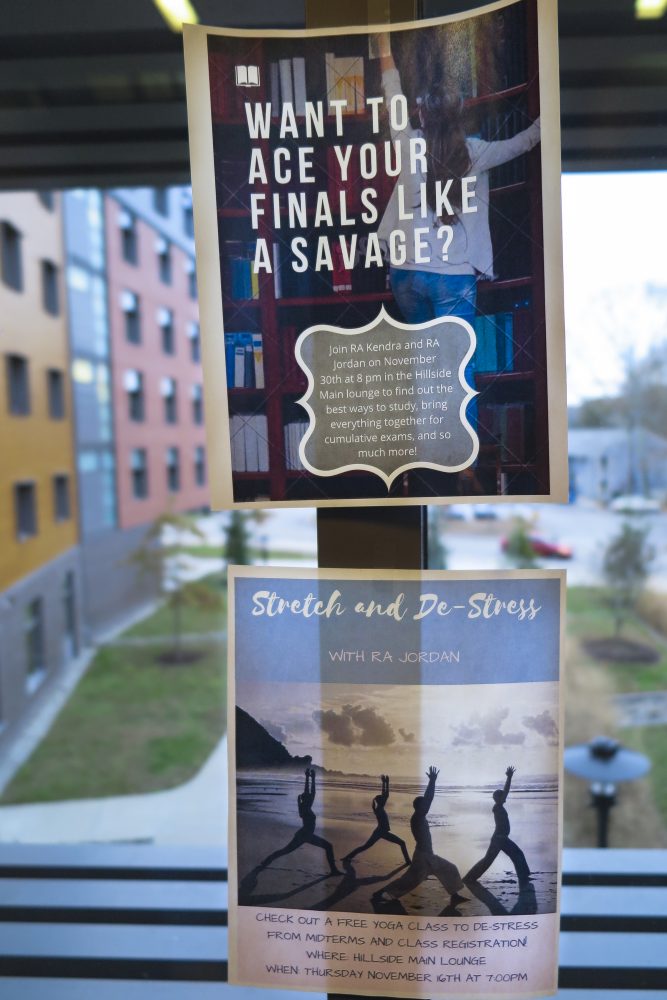Lianna Blakeman and Theresa Brown
News Editor and Contributing News Reporter
This semester marks the beginning of the new residential curriculum that has been implemented in all residential halls across the University of Rhode Island campus. While this is a typical thing in other institutions, this is the first time a curriculum like this is being implemented at URI.
“There always has been a programming model in place” but now “[they’re] enhancing this model,” Kathy Collins, vice president of Student Affairs said.
Hannah Keymoore, hall director in Barlow Hall and chair of the educational initiatives committee, was an instrumental part to the creation of this residential curriculum.
“The purpose of the residential curriculum is that it assesses needs proactively,” Keymoore said. “So it is supposed to be general enough so that all of the learning outcomes and values should be targeted to the needs of the students.”
In the works for almost two years, Keymoore and other individuals from across the University formed a committee to look at mission and vision statements from documents, such as the Academic Strategic Plan, to find common values they felt students living on campus should learn.
From these values, the committee found that there were four specific strategic themes that the values overlapped with: citizenship, intrapersonal development, academic success and social responsibility. Each strategic theme also includes two learning outcomes, which are goals that the committee hopes to see each student meet in their years living on campus.
Kayla Mosko, coordinator of staffing and development at Housing and Residential Life, believes that the strategic themes and learning outcomes were already things that housing was trying to teach the residents, just not as consistently throughout all residential halls.
“We want it to be one overall curriculum for all of our students,” Mosko said.
At the beginning of the semester the RAs were given goals and requirements to accomplish. For instance, this year roommate agreements were required of all students, thus allowing students to excel in their citizenship and social responsibility. By allowing students to talk and problem solve with the people living with and around them, the program gives them skills that they can use in the future with roommates.
Within the first six weeks, another goal for RAs was to create a personal relationship with the students in their hall by attempting to have a five to ten minute conversation, called an intentional conversation. This proved to be very successful as it allowed students to voice concerns or get to know their RA.
“Out of our total students, 5,694 students, we completed 3,054 conversations,” Keymoore said.
This summer there was a focus group which included RA’s who went over the curriculum and made suggestions before its implementation this fall. One of the biggest issues the focus group found was that the original curriculum did not allow for programs within the first six weeks of the semester. This was because Keymoore and the rest of the committee wanted RA’s to focus more on intentional conversations.
“If our RA’s, who are the one’s who are implementing this, have suggestions and have changes, that’s what we want to listen to because they’re the ones at the end of the day who we want to support this [curriculum,]” said Keymoore.
In the past, many students went to the programs for the food that was provided. Keymoore wants to make food more of a supplement to the program rather than the full focus.
There has been many different opinions among the residents as to whether or not these programs are helpful to them.
Nick Matta, a freshman film major, said “I didn’t think they would be helpful, because I personally adjusted to school really easily. I felt some of the events seemed kind of pointless too because a lot of the skills I had already learned from high school.”
Bridget Rounds, a freshman undeclared major, spoke of her roommate who had a different experience with the programs.
“My roommate went to an event when she needed help dropping her class at the beginning of the semester and she found it very helpful,” Rounds said.
Frankie D. Minor, the new Director of Housing and Residential Life, said, “Ideally… we want their experiences as a residential student is to have additional value added to their education experience.”
Collins believes that there are two things students living on campus should learn: the value to living on campus and how it affects academic performance as well as the sense of belonging students get living in the dorms.
Keymoore, Mosko and Minor all believe that this curriculum still needs work and modification. “No one get’s it right the first time,” said Minor. But they are all hopeful that with time and the data that they are collecting they will be able to tweak the curriculum to fit the exact needs of the University.
“We anticipate that we’ll make some adjustments to it and we’ll be taking feedback from our staff too who’ve been implementing this to help us look through the data and guide what our next steps are,” Mosko said.
Being in the job for less than one week, Minor says that what made this position attractive to him was that Housing and Residential Life was implementing the creation of the residential curriculum.

